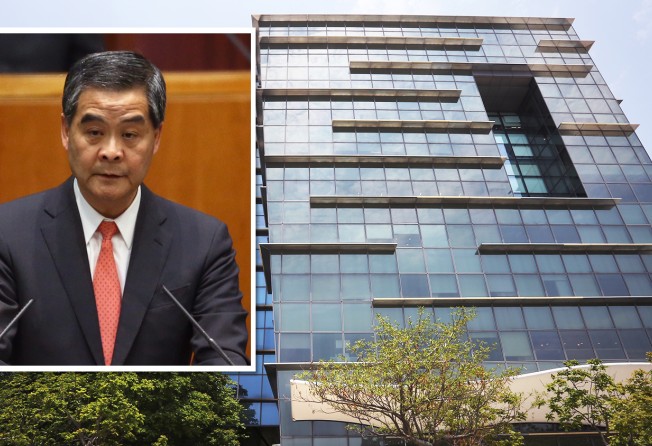Hong Kong chief executive announces HK$2 billion fund to boost investment in innovation and technology
Innovation and Technology Venture Fund will encourage private venture funds to invest in start-ups through a matching process

A new HK$2 billion government fund to boost investment in innovation and technology has been announced by chief executive Leung Chun-ying in his policy address, with more funding of an equal amount to boost university scientific research.
The Innovation and Technology Venture Fund is aimed at encouraging increased funding from private venture funds in technology start-ups through a matching process.
It will provide support to early stage start-ups which currently struggle to raise money to support their businesses from prototype to commercialisation stages, according to Duncan Chiu, vice-president of the Hong Kong Business Angel Network and managing director of Radiant Venture Capital.
“It will encourage more professional venture capitalists to come to Hong Kong and, in that sense it’s chicken and egg, if we have more venture capitalists coming to Hong Kong, then we will attract more overseas talent to Hong Kong to start their start-ups,” Chiu said.
Chiu said the larger than expected size of the matching fund will allow a longer cycle for investment in start-ups as the necessary investment period is five to seven years, meaning funding will not run out before returns are made.
Scientific research is set to gain more support to commercialise findings with another HK$2 billion earmarked through the Innovation and Technology Bureau for universities to carry out applied research projects.
Leung admitted Hong Kong had fallen behind in terms of research at a media briefing.
Under the policies to further encourage start-ups, Cyberport, which houses start-up incubation schemes and co-working spaces catering to the city’s 1,600 start-ups, will provide HK$200 million to launch a Cyberport Macro Fund to invest in ICT start-ups.
The focus on start-ups was viewed by some as indicating a failure to develop policies to support a sustainable ICT industry.
“Once again, there is tremendous support for ICT start-ups, which is great. But then what?,” said Michael Gazeley, managing director of cyber security firm Network Box.
“The government needs to look at how these local start-ups can become locally successful, then ultimately globally successful, businesses.”
The chief executive also announced a HK$500 million Innovation and Technology Fund for Better Living to provide financing for projects using technology to improve the daily lives of citizens, from transportation to health care and education.
Michael Leung, president of the Hong Kong Computer Society, welcomed the announcements, but said the address failed to outline policies on providing the ‘software’, such as human talent, needed to support ICT businesses.
“They really fall short of any specific measures, it’s a bit wishy washy,” he said.
“I think the government should have concrete measures to get young people get into STEM [science, technology, engineering and maths] areas.”
Leung also announced that the government will open up more public data to be used by developers to build apps.
The Innovation Technology Bureau will develop policies on the application of big data.
In addition, the government will double the number of Wi-fi hot spots within three years to 34,000 in public areas, as well as increasing download speeds and security features.
Free government Wi-fi has come under criticism for its slow speeds and poor signal strength.
A 2013 Audit Commission report found that 55 per cent of outdoor speeds were less than the stipulated one megabit per second minimum.